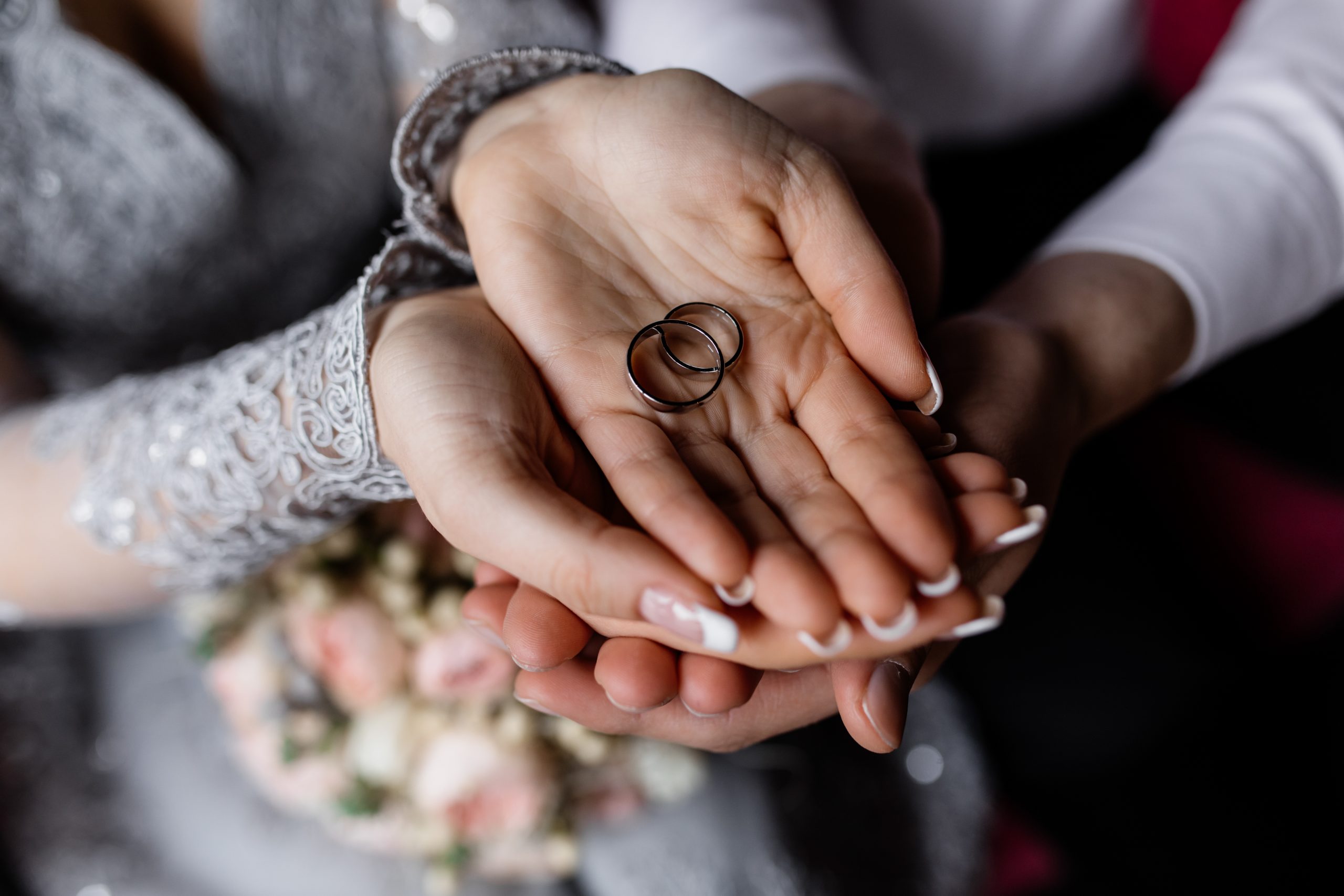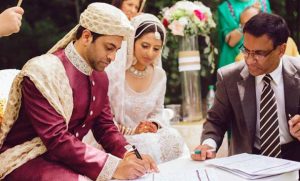This article has been authored by Anam Fatima and Nadeem Khan, who are pursuing B.A.LL.B degree from Integral University Lucknow, Uttar Pradesh.
Table of Contents
Abstract
In Islam, Marriage is considered a rightful way in which a man and woman can enter into a relationship. Islam considers marriage as a contract that brings responsibilities for both partners. There were a number of traditions that were prevalent among the people of Arabs and muta’h marriage was one of those traditions which simply mean a temporary form of marriage that is done with the consent of both parties and the marriage loses its existence after the completion of the decided time period however the marriage becomes permanent if in case no time duration was decided at the time of formation of marriage-contract.
The word Muta’h is similar to pleasure and such pleasure lasts for a short time. The time duration of muta’h can be as short as one month or even one hour. Mut’ah marriage was allowed to Arab males during wars and long journeys to prevent the practice of adultery and prostitution. This practice of mutah marriage came to an end with the rise of Islam and Prophet Mohammad played a significant role in removing this form of marriage from society.
The two major sects of Islam i.e. the Shia and the Sunni accept that muta’h was being followed however there are many points on which these two sects have different opinions related to muta marriage. Sunni Muslims do not approve of mut’ah and they see it as a form of prostitution however a particular sect of Shia Muslims consider it legitimate.
Verse number 24 of the holy Qur’an talks about mut’ah marriage. This article elaborates on how mut’ah came into existence, the reason behind the muta’h marriage, its history and current position, and the outlook of Indian society with respect to mut’ah marriage.
Keywords – Muta’h ,Islam, Contract, marriage, Quran, Shia, Sunni.
Mut’ah Marriage
Marriage is the main important social need as it establishes family, and family is the fundamental component of society. Also marriage is the only legal way to accept the indulging of men and women.
Marriage in Muslims is a social and legal contract which permits a man and a woman to live and reproduce together.
The major function of marriage is that it is one of the methods acquired by human beings to control relations between two genders and the relation of a child with the society is also recognised through marriage.
In Islam, marriage is termed as a social contract which brings a number of responsibilities for both husband and wife and in Islam, the wife is not there for the fulfillment of sexual desires only but also she has number of responsibilities towards her husband, marriage and entire family and she contributes in making the whole humanity meaningful.
Various customs and traditions were deeply rooted in the Arab and people of Arab used to follow those traditions before the birth of Islam. Some of those traditions were pathetic and unethical in nature and needed to be abolished in the society, those traditions were removed from the society as Islam came into existence, and the birth of Islam marked the abolishment of evil traditions and brought a drastic alteration in the concept of this tradition of marriage. Temporary marriage i.e. Mut’ah marriage which is one of those traditions.
The word mut’ah means pleasure, joy, enjoyment, sexual desires or something which provides benefits for a short span of time.
Simply, it could be explained as enjoyment, joy or to have the usufruct of something
The nature of Mut’ah marriage is temporary and it is for a short period of time. The practice of mut’ah marriage has been observed in the Muslim community.
According to Professor Fyzee – The word “Mut’ah ” means “pleasure” in Arabic. In the Shia context, Mut’ah means a “temporary marriage.” A man pays a sum of money to the woman (i.e. “dowry”) and both of them are allowed to establish sexual relationship with each other for however longer a period of time they admit in the agreement made for the mutah marriage. The duration of Mut’ah marriage can be as short as a month, a night, or even an hour.
A person can renew the contract of mut’ah marriage if he wants to extend his marriage. In simple terms, we can say that if a person is interested in continuing his relationship with mut’ah , he is allowed to renew his marriage contract of mut’ah or he can start a permanent marriage. In case, if the mut’ah marriage was consummated then the contract should be renewed before the iddat otherwise a contract can be renewed at any point when mut’ah marriage is finished.
Prophet Mohammed, was the last messenger of Islam (29th August, 570 A.D, Mecca) .He was the one who prohibited custom like Muta marriage or temporary marriage and considered it ‘haram’ (strictly prohibited and a sin).
Historical Background Of Muta Marriage
The ‘Ulama’ , both Shia and Sunni, admit the point that mut’ah marriage was allowed at the very beginning of Islam. However, their points differ as to the causes and grounds it was allowed.
In the authorities of Sunni, they agreed that this marriage system was permitted by the Prophet all through his existence, after that they maintained that in the end this was wholly prohibited by him. In comparison to it, the Shias maintain that it was not banned by the Prophet, and they tried to prove it by various sources of their religion.
The emergence of muta’h can be detected back to the times of war when the very first Muslim jihadis, guided by their prophet Mohammad, raided the caravans and invaded neighboring society.
In the earliest period, it is said that due to wars, when the males of Arab were compelled to live far away from their homes continuously for longer time duration then they used to fulfill their sexual desires through prostitutes however prophet Mohammad, the ‘perfect man of Allah’ abstained those people to commit such unethical act and commanded that such warriors will have to get married with those girls and a dowry to their private part (vaginas) is necessary and required and therefore in this way the concept of “Muta” was born.
Prophet Muhammad allowed temporary marriages during journeys and military wars to prevent the practice of prostitution, adultery, etc however later this form of marriage was prohibited by him and he declared it ‘haram’ forever as he observed that it became a license for sexual desires and joy and no obligation or liabilities were imposed upon the men to provide food, clothing, shelter to the women which was not fair and justified to the woman’s part. The Prophet felt that the concession for muta was being exploited and misused and so he removed this practice.
The Second Caliph, ‘Umar‘, also tried to finish the concept of temporary marriage and condemn the practice of muta however Shiites refuse Umar’s jurisdiction and command because they assume that Umar took over Muhammad’s correct and lawful heir ‘ALI’ who was the son-inlaw of prophet Mohammad.
Since then mut’ah marriage is not practiced under any school of Muslim law except the Ithna Ashari Shia Law.
Views Of The Holy Qur’an About Muta
Verse number 24 of Surat an-Nisa of the Qur’an talks about the muta marriage. It is evidently stated in the Holy Qur’an that:
“Forbidden you are a married woman, except what your right hand possesses. This Allah has written for you, and all other women besides these are permitted to you, so that you may seek them out with your wealth, seeking chastity and not fornication. So when you have contracted temporary marriage [istimt’atum] with them, then give them their words. There is no sin on you for whatever you agree to after this. Indeed, Allah is Knowing Wise.
A hadith says that if a man knows that the mut’ah that he is going to perform will affect his first marriage, then he is not allowed to do it so one should be careful before engaging himself in a mut’ah marriage.
Essentials Or Basic Components Of Muta Marriage
The formula ( declaration and acceptance)
Mut’ah marriage is also of contractual nature. It is simply an offer, Ijab by the female and the man accepts it (gabul).
The acceptance made by the man must be in conformance with the offer made by the woman, the principle of the meeting of minds i.e. consensus ad idem. Both the man and the woman must be legally competent.
The people
A Muslim male may perform a mut’ah with an Islamic woman or the woman from the “people of the books”.
A man cannot perform mutah with a woman who is unbeliever or who is an enemy of the prophet. If a man is already married then he cannot perform mut’ah marriage without the permission of his wife and if he does so then in that case the contract of mut’ah marriage will be declared invalid.
Time duration i.e. ‘mudda’
The period of cohabitation must be fixed in mut’ah before the marriage takes place. ‘Ulema’ says that if the limit of the time period is not mentioned, in that case, the marriage becomes permanent.
The Dower
Dower is also important for the mut’ah marriage and it should be described or else the union or the contract will be declared invalid and the dower must be specified in the contract. The dower can be in any form, it can be in the form of cash or property.
Termination And Divorce In Muta Marriage
The married couple segregates after the expiry date of the decided time limit of mut’ah marriage thus no divorce takes place in this form of marriage. Mut’ah recognises no concept of divorce.
Mut’ah marriage dissolves or terminates even when either of the party dies or when the husband, the male leaves her wife prior to the expiry date of the fixed time period so in that case the husband returns the remaining dower to the wife. In other words, we can conclude that the husband is allowed to end the mut’ah contract before its expiry however in this case he has to make a gift in the name of his wife for the remaining time period i.e. called as hibai-muddat and the husband is not bound to take permission from his wife for terminating the marriage.
If the marriage was consummated then a woman has to observe two menstrual cycles, no matter how short the time duration of mut’ah was. The Wife has to observe her iddat period for four months plus ten days in the case when the marriage has been dissolved by the husband’s death.
If there is a case of a pregnant mut’ah wife then in such case the iddat period has to be observed till the birth of a child.
Conflicting Views Of The Shias And The Sunnis
Shia Muslims consider ‘mut’ah very important and they always try to sustain it in Islam. Shia law is also popular as ‘Ja’fari school of law’. The Imam Ja’far contemplated muta as heavenly mercy which saved people from the major sin of fornication.
Arguments Of Shias
Imam Ja’far considered mut’ah right and permissible because of the following reasons:
- The solidarity among the Shias.
- Qur’an’s words : ‘Marry such women as seem good to you!’ (4:3). Since, then muta is a form of marriage, but one which men desire to perform by expanding their property.
- The words of the Holy Qur’an: ‘So those of them whom you enjoy, give to them their appointed wages’ (4:24). The word ‘istimta’ (enjoy), unless otherwise qualified, signifies ‘temporary marriage.’
- Ibn Mas’ud’s version of the Qur’an, which adds on the words ‘to a specified term ‘ to the above verse.
- There is no controversy on a point that mut’ah was allowed during the commencement or the beginning of the religion of Islam and so the people who say that the verse was repealed should prove their declaration.
- The principle from which discussion must begin is that mut’ah was allowed.
- The words of Umar concerning the “Two muta’s” , here Umar tells us that at the time of the prophet, mut’ah was permitted i.e., it was a part of the religion of Islam. Proof must be provided that it is no longer so.
On the other hand, the Sunnis admit that mut’ah marriage was allowed at the start of the religion of Islam. During long journeys and wars mut’ah marriage was allowed to prevent emasculation among the soldiers however later on it was banned and was declared “haram”.
Argument Of The Sunnis
Argument of the Sunnis is based on the point that it is forbidden for a man to have a sexual relationship with any other female except his own wife. This argument of the Sunnis proceeds by indicating that without interrogation a female enjoyed through mut’ah is not a bond slave or a slave. Nor is she a wife, however everybody accepts that inheritance is not involved in mut’ah. If she were a wife, the child would belong to the husband but it is not a case and finally, if she were a wife, it would be mandatory for a woman to observe the waiting period.
With regard to the ‘abrogation’ of the verse relating mut’ah, contemplations of History reveal that this cannot be the instance. The verse specified as abrogating mut’ah was revealed in Mecca, while the verse establishing it was disclosed after the migration of the prophet to the medina however a verse that abrogates another verse must be revealed after it, not before it.
The specified conditions of mut’ah as accepted and established by the hadith literature reveal that mut’ah is an exception. Nor is it the only exception, since a non-believer cannot inherit from a Muslim, nor can a homicide or murderer inherit from his victim. In short, inheritance is concerned with permanent marriage, but even in permanent marriage, it has certain exceptions, so that the verse establishing it cannot be interpreted as nullifying muta’s effectiveness and validity.
A child born out of a mut’ah marriage will not be considered illegitimate. The offspring is always considered as legitimate in mut’ah.
In the same way, a number of hadith exist to show that a female (wife) must notice the iddah or iddat in mut’ah marriage.
Outlook Of India
It has been observed in India that most of the Indian Muslim women are against mut’ah marriage and they do not support the concept of temporary marriage.
Indian society does not recognise the temporary form of marriage however there are few people and a specific sect in the Muslim community who perform mut’ah but this kind of marriage is not enforceable in the Indian court of law.
A case that took place in Hyderabad drove the much-required popularity of this temporary marriage in Indian Islamic society. In this case , a girl named Nausheen who was 17 years old was deliberately married to a man who was too aged for her just for 1800$. The time duration of marriage was fixed and it was for four weeks. It was found that the bride ran away and lodged a complaint when she was forced to consummate the marriage.
The fundamental right which is being provided to Indian citizens through part III of the Constitution of India i.e. Article 21 that includes the right to live a dignified life . Such a right is getting infringed in this temporary form of marriage. A girl is simply pushed and forced into a non-consensual marriage with a person who is an old- aged man only to get a sum of money. A custom that is a reason behind the exploitation and abuse of girl children for a long time has not been removed or changed. It is still static in nature. As reported by Shaheen Women’s Resource and Welfare Association, a charity of Hyderabad that projects the affairs of contractual marriages since 2002, In 2017, 2018, and 2019 there have been 156, 83, and 66 contract marriages respectively in Hyderabad.
It was held in the case of Syed Amanullah Hussain and Ors V. Rajammaand Ors, that mut’ah marriage does not establish mutual rights of inheritance between a couple; however, children conceived are undoubtedly legitimate and can inherit from both parents.”
This was also repeated in the case of Shoharat Singh V. Musammad Jafri Bibi: It was stated that “A Mut’ah marriage is, according to the law which prevails among the Mohammedans of the Shia sect, a temporary marriage, its duration being fixed by agreement between the parties. It does not confer on the wife any right or claim to her husband’s property, but children conceived while it exists are legitimate and capable of inheriting from their father.”
Major Relevant Points With Respect To Mut’ah
- Parties must have attained the age of puberty.
- The Involvement of free consent of parties is mandatory.
- Cohabitation involved between parties is valid and lawful.
- Children born out of mut’ah marriage are completely legitimate and they can inherit property from both the parents.
- In case cohabitation takes place between the couples then in such case the wife has the authority to receive a full dower however if the cohabitation does not take place then the wife will receive half of the dower.
- The contract of mut’ah is valid if the term and dower are fixed but in case only the time period is decided and the dower is not ,the contract stands void. Another case is that if only the dower is mentioned and not the time period then also the contract remains void as in such case mut’ah may operate as a permanent marriage.
- Countries like Iran, Iraq practices mut’ah. Mut’ah is observed in countries which have a large population of shia Muslims.
Suggestions
Mut’ah is a sinful practice and falls under the category of prostitution in which women are pushed and such an evil practice should be removed completely. The most painful thing is that the activity of mut’ah, a form of prostitution is being done in the name of religion. The Indian courts had many cases in front of their eyes with respect to mut’ah marriage however most of the cases were related to the child’s legitimacy born out of mut’ah marriage.
Our Indian society is developing and evolving and evil practices such as child marriage, child labour, mut’ah marriage, etc are obstacles in the way of development. All these kinds of practices must get a full stop.
There is a need to generate awareness among the Muslim men and women in order to bring mut’ah to an end. The government should take the initiative and should come forward to restrain evil practices that are still in our society. Government should make strict legislation regarding the same.
Marriage is considered a very pious step in Islam which includes love and affection. Marriage in Islam allows couples to have a family and both the couples are bound to perform their responsibilities towards each other, towards their children and in-laws as well however mut’ah is a lustful practice that is not being done with the purpose of leading a family and a happy life and in this way mut’ah disrespects the Islamic institution of marriage as the couples do not have any intention to fulfill their responsibilities.
Conclusion
Mut’ah marriage is still practiced in many parts of India and Hyderabad is at the top of the list. Marriage is a social institution through which a family is established legally. Marriage involves the legal and social union of two different sexes, two families come closer and a healthy relation is established between them. Love and affection play a major role between the married couple however when we talk about mut’ah marriage , we do not find any love or affection between the couples hence it is not a proper form of marriage.
It has been acknowledged that mut’ah marriage is only for temporary pleasure and for the fulfillment of sexual desires. Shia and Sunni, the two major varieties of Muslims have different –different opinions regarding the same. The Shia community has its own points through which they support this temporary marriage and the points of the Sunni community are also strong. There are certain conditions or the essentials of mut’ah marriage like an ordinary Islamic nikah however mut’ah marriage is not based on the principle of love and that is the major drawback of this relationship as it is pre-decided that such marriage is for a specified time duration.
Islam believes in the concept of proper Nikah which is not only about sexual desires and pleasure but it is a pious bond that includes love, respect and support and also brings a number of responsibilities and duties for both the husband and wife and allows them to accompany each other throughout their life journey. When the concept of Nikah is there then why should we allow the sinful practice of mut’ah in our society? Hence mut’ah should not be encouraged at all as the prophet himself tried to stop this practice and the caliph ‘Umar’ also contributed his best to stop this temporary form of marriage.
Mut’ah also promotes prostitution which is one of the biggest sins in Islam. It also promotes child marriage and affects the health of the women and also violates some of the articles of the Indian constitution such as article 21 which is not related to the right to life only however it also includes the right to a dignified life and there is also the violation of the Article 23 of our Indian constitution that talks about the “trafficking of human beings”.
References
- Abedi, D. (2016, December 31). Nikah Mut’ah and Nikah Misyar Are Temporary Marriages That Only Benefit The Muslim Man: They Should Be Seen As Nothing But Prostitution | Deeba Abedi, New Age Islam.
- Adv. Yukti Rathi. (2020, December 27). Marriage for pleasure in islam : muta marriage – Kreately. Kreately. https://kreately.in/marriage-for-pleasure-in-islam-muta-marriage/
- Advocate Tanmoy Law Library. (2018, June 10). Legal Effects and Consequences of Muta Marriage [Temporary Marriage]. Advocate Tanmoy Law Library.
- Badran, S. Z., & Turnbull, B. (2019). Contemporary Temporary Marriage: A Blog Analysis of First-hand Experiences. Virtual Commons – Bridgewater State University.
- Mukherjee, M. (2019, July 15). MUT’AH MARRIAGE IN ISLAM: A CAMOUFLAGED PROSTITUTION – MONALISA MUKHERJEE. ILS JCCL.
- Samoun, S. (n.d.). Temporary Marriage: Revisiting Muhammad’s Permitting a Form of Prostitution known As Muta. Answering-Islam.org.



